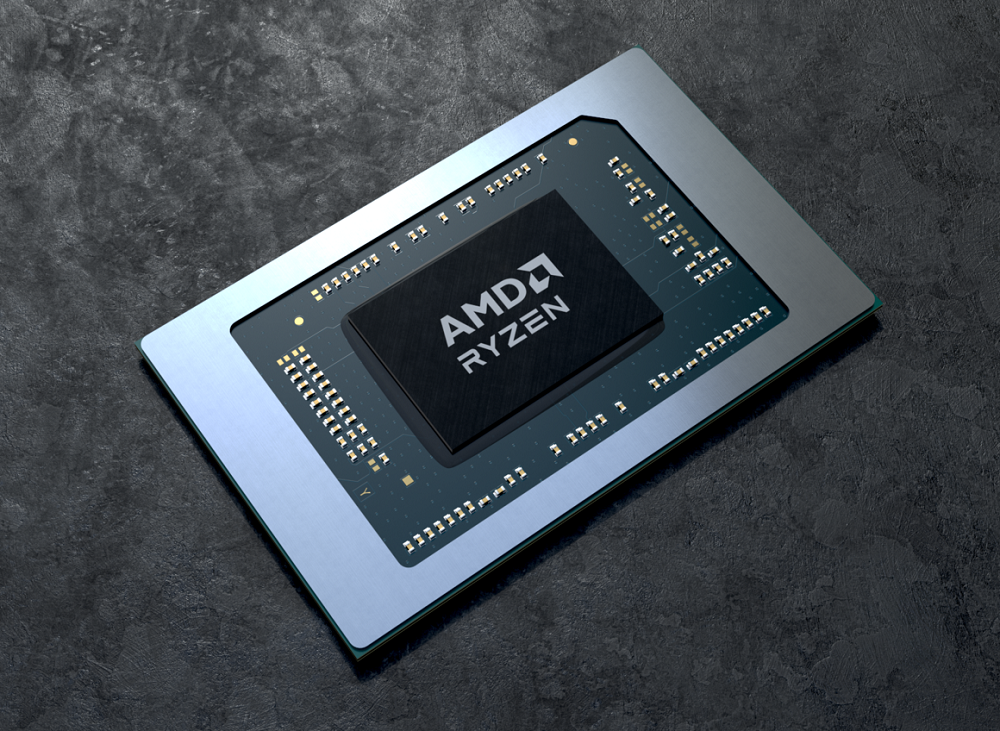AMD’s AI Architecture Making Its Way to Chips

A new AI architecture called XDNA is changing the way AMD designs chips of the future.
During a keynote at CES, AMD's CEO Lisa Su shared how it was baking artificial intelligence features directly into chip designs, which bring a fundamentally different way to process information on conventional CPUs.
"AI is truly the most important megatrend for future of tech," Su said during a keynote Wednesday evening. "The full potential of AI though can only be realized when it is available across a range of devices."
AMD at CES announced a range of new chips with AI as a central feature. The products integrate AI features with technologies it acquired from the Xilinx acquisition, which was completed earlier this year.
The products in the company's XDNA architecture are adaptable, and allows the company to scale AI "from PCs to intelligent endpoints to edge devices and into the cloud," Su said. She added that the accelerators can be adapted for applications and power efficiency.
 Su announced the company was previewing its first inferencing accelerator, called the Alveo V70. It is built on AMD's XDNA technology, and can be plugged into servers.
Su announced the company was previewing its first inferencing accelerator, called the Alveo V70. It is built on AMD's XDNA technology, and can be plugged into servers.
The Alveo V70 was designed to accelerate applications such as video analytics and customer recommendation engines. The card delivers performance efficiency in a small form factor, Su said. The accelerator offers 400 trillion operations per second of AI computing performance, supports PCIe 5.0 and draws 75 watts of power.
Su claimed its Alveo V70 provided better performance than Nvidia's T4 GPU accelerator in applications such as image classification and object detection. Chip makers share performance numbers that are simulated to the best conditions with the goal for its chip to outperform rival offerings. The real-world performance numbers are typically very different from the numbers provided by vendors.
AMD is taking pre-orders for the Alveo V70, and the chips will be available in the spring season.
The core technologies in Alveo V70 AI chip is also in AMD's latest laptop chips, the Ryzen 7040, which was announced at CES.
"It is the industry's first mobile x86 processor to integrate a dedicated on-chip AI engine which we call Ryzen AI," Su said.
The Ryzen 7040 chips runs four simultaneous AI streams, delivering up to 12 trillion operations per second. The chip has eight CPU cores based on the Zen 4 architecture, and runs at speeds of up to 5.2GHz. The chip is made using TSMC's 4nm manufacturing process. The chips will be used in laptops that will become available in March.
Users will be able to run massive models on the AI engines inside the Ryzen CPUs that previously required GPU power, while drawing only a fraction of the power, said Panos Panay, chief product officer at Microsoft, in an on-stage appearance during Su's keynote.
For example, in Windows Studio Effects, which is available on Windows 11, Ryzen AI will make video enhancements to reduce background blur, improve portraits, suppress background noise, and automatically frame videos.
"These experiences demand trillions of operations per second.... they can now run on AMD's AI engine, not taxing the CPU or GPU, while only consuming a few 100 milliwatts," Panoy said.
To be sure, Windows 11 PCs with Qualcomm’s Arm-based chips already have AI accelerators, and support Windows Studio Effects.
AMD's AI product offerings also include GPUs, ASICs and FPGAs.











